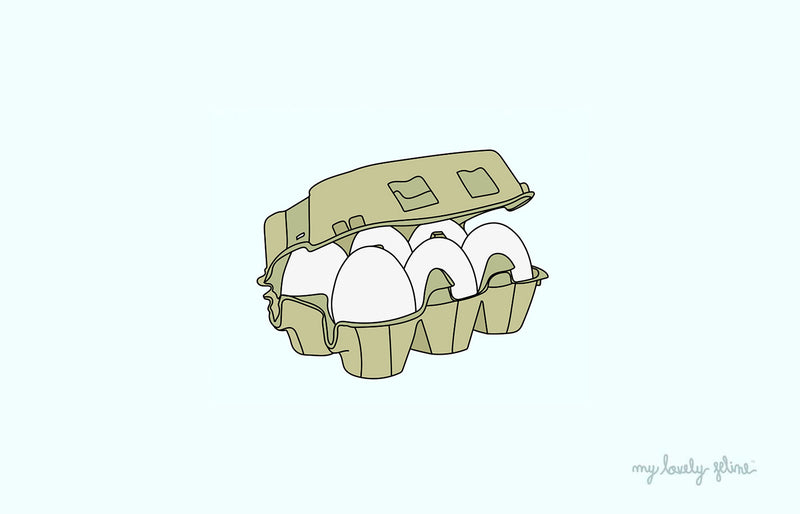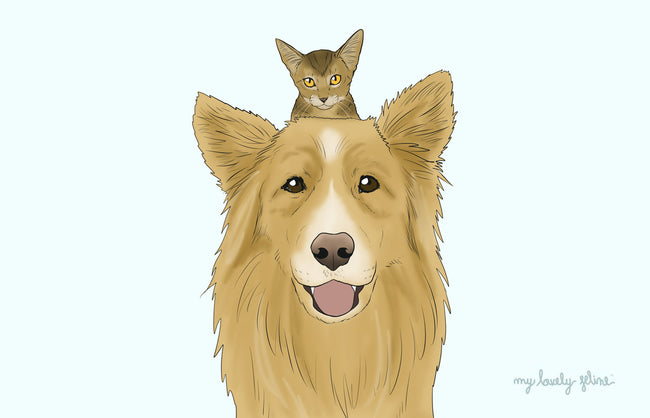|
Cats and eggs are two things that most people wouldn't associate with each other, but the question of whether cats can eat eggs or if eggs are safe for cats to consume is a topic that has been debated for years. While some people say that eggs are a great source of protein for cats, others argue that eggs can be harmful and cause health problems for our feline friends. In this article, we're going to dive deep into the truth about cats and eggs, exploring the nutritional benefits, potential risks, and everything in between. So whether you're a cat lover, a pet owner, or simply curious about the topic, keep reading to find out if eggs are safe for your furry friend to eat. |
Nutritional Value of Eggs
Eggs are a highly nutritious food, packed with vitamins and minerals that are essential for good health. They are a great source of protein, which is important for building and repairing tissues in the body. Eggs also contain a range of other nutrients, including vitamins A, D, E, and K, as well as B vitamins, iron, and selenium.
For humans, eggs are considered a superfood, and they are often recommended as part of a healthy diet. But what about cats? Can they benefit from eating eggs too?
Can Cats Eat Eggs?
The answer to this question is yes, cats can eat eggs. In fact, many commercial cat foods contain eggs as an ingredient. Eggs are a good source of protein for cats, and they can help to support healthy muscle growth and development.
However, it's important to note that not all cats can tolerate eggs. Some cats may have an allergy or sensitivity to eggs, which can cause digestive issues such as vomiting or diarrhea. If your cat has never eaten eggs before, it's a good idea to introduce them gradually and monitor their reaction.
Benefits of Feeding Eggs to Cats
Feeding eggs to cats can provide a range of benefits. As mentioned earlier, eggs are a good source of protein, which is essential for maintaining healthy muscle mass. They also contain a range of other nutrients that can support overall health and wellbeing.
One of the main benefits of feeding eggs to cats is that they can help to improve the condition of their skin and coat. Eggs contain biotin, which is a B vitamin that is essential for healthy skin and fur. By feeding your cat eggs, you can help to keep their coat shiny and healthy.
Eggs can also help to support your cat's immune system. They contain selenium, which is an antioxidant that can help to protect cells from damage caused by free radicals. This can help to reduce the risk of disease and illness in your cat.
Risks of Feeding Eggs to Cats
While eggs can provide a range of benefits for cats, there are also some risks to be aware of. As mentioned earlier, some cats may have an allergy or sensitivity to eggs, which can cause digestive issues.
In addition, feeding your cat too many eggs can lead to an imbalance in their diet. Eggs are high in fat and cholesterol, which can cause health problems if consumed in excess. It's important to feed your cat eggs in moderation, and to make sure that they are getting a balanced diet that meets all of their nutritional needs.
How to Prepare Eggs for Cats
If you decide to feed your cat eggs, it's important to prepare them in the right way. Raw eggs can contain bacteria such as salmonella, which can be harmful to cats (and humans too). It's therefore recommended to cook eggs before feeding them to your cat.
Boiled or scrambled eggs are a good option for cats. Make sure to remove the shell before feeding them to your cat, as the shell can be difficult to digest and may cause digestive issues.
It's also important to avoid adding any seasoning or spices to the eggs. Cats have sensitive digestive systems, and certain spices can be harmful to them. Stick to plain, cooked eggs to keep things simple and safe.
Alternatives to Eggs for Cats
If you're not comfortable feeding your cat eggs, or if your cat has an allergy or sensitivity to eggs, there are plenty of other options available. Commercial cat foods are designed to provide a balanced diet that meets all of your cat's nutritional needs, and there are many different types of food to choose from.
You can also try feeding your cat other sources of protein, such as chicken or fish. Just make sure to cook the meat thoroughly and remove any bones before feeding it to your cat.
Conclusion: Final thoughts on feeding eggs to cats
In conclusion, cats can eat eggs, but it's important to do so in moderation and to prepare the eggs in the right way. Eggs can provide a range of benefits for cats, including improved skin and coat condition and a stronger immune system.
However, it's important to be aware of the risks associated with feeding eggs to cats, such as the risk of an allergic reaction or an imbalance in their diet. If you're unsure whether or not to feed your cat eggs, it's always a good idea to speak to your vet for advice.




